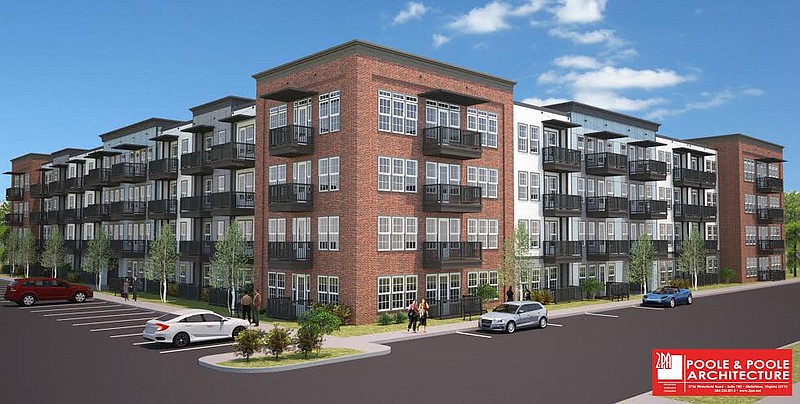Saying the lack of affordable housing has hit an "egregious" state in Chattanooga, a nonprofit group has won up to $25,000 in city funds to hire an entity to study a new solution.
Creation of a community land trust in Chattanooga will be examined to see if could help ease the housing problem, which the group said on Wednesday is due in part to gentrification of the center city with the influx of more affluent residents.
Such a land trust could "create a new resource" in the city, said Michael Gilliland of the nonprofit Chattanooga in Action for Love, Equality and Benevolence, or CALEB.
Community land trusts are often used to ensure long-term housing affordability. For example, such trusts acquire land and maintain ownership of it permanently. With prospective homeowners, it may enter into a long-term, renewable lease instead of a traditional sale.
Or, if a homeowner buys and later sells the housing unit, the family may earn only a portion of the increased property value. The remainder is kept by the trust.
"A community land trust preserves that affordable housing," said Gilliland of the nonprofit that group that includes faith, community and labor organizations.
The Chattanooga Health, Educational and Housing Facility Board (HEB) earmarked as much as $25,000 for CALEB to hire an entity to conduct a feasibility study of establishing a trust in the city. The money will come from the city's Chattanooga Affordable Housing Fund.
HEB Chairman Hicks Armor said that use of such a trust to help create more affordable housing is "raising people up."
"It's like giving a kid a fish or teaching him to fish," he said. "This action is what we try to foster."
Board member Richard Johnson said that "we love these sorts of things."
Gilliland said the city could provide land, or private or nonprofit groups could do so.
Donna Williams, administrator of the city's Department of Economic and Community Development, said community land trusts are "a way to keep that affordability in perpetuity."
"It's another tool," she said.
Charlotte Williams, CALEB board chairwoman, said plans are to give Chattanooga residents a part in the decision-making process related to the potential trust.
"This will be very helpful for our city," she said.
Downtown and the surrounding area has seen waves of new housing ranging from a slew of new apartment buildings to townhouses and condominiums. Prices for the new units have risen over the years, with some of the new privately owned units topping more than $1 million each.
Most recently, developers in the South Broad area are taking steps to move ahead with new apartments, townhouses and commercial space in what's pegged as a $75 million project.
"South Broad has not seen a lot of development over the last 30 years," said Joe Fielden of Neyland Apartment Associates in Knoxville. "It may be the biggest project ever in that neck of the woods."
Developers for that project have won a variance for building height from Chattanooga planners on the nearly 20-acre tract at Broad and West 33rd streets near Chattanooga Christian School.
Contact Mike Pare at mpare@timesfreepress.com or 423-757-6318. Follow him on Twitter @MikePareTFP.
